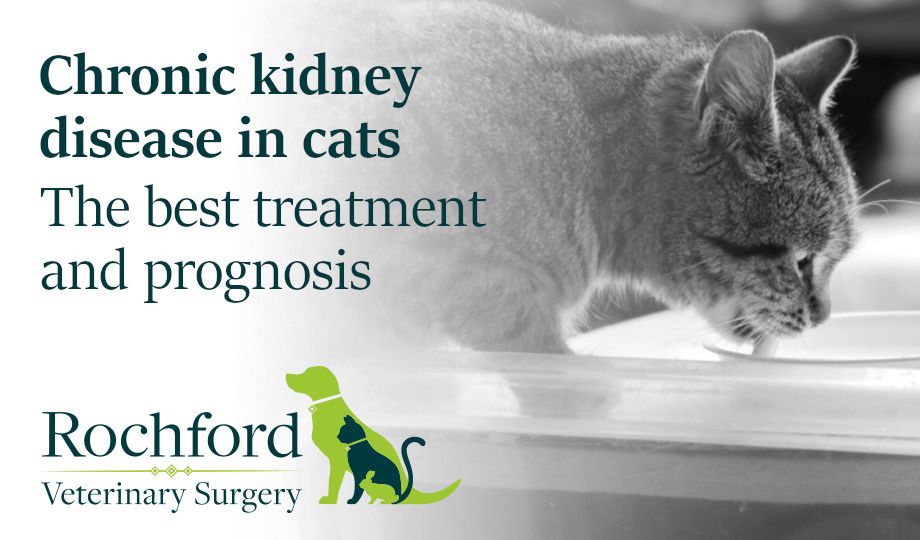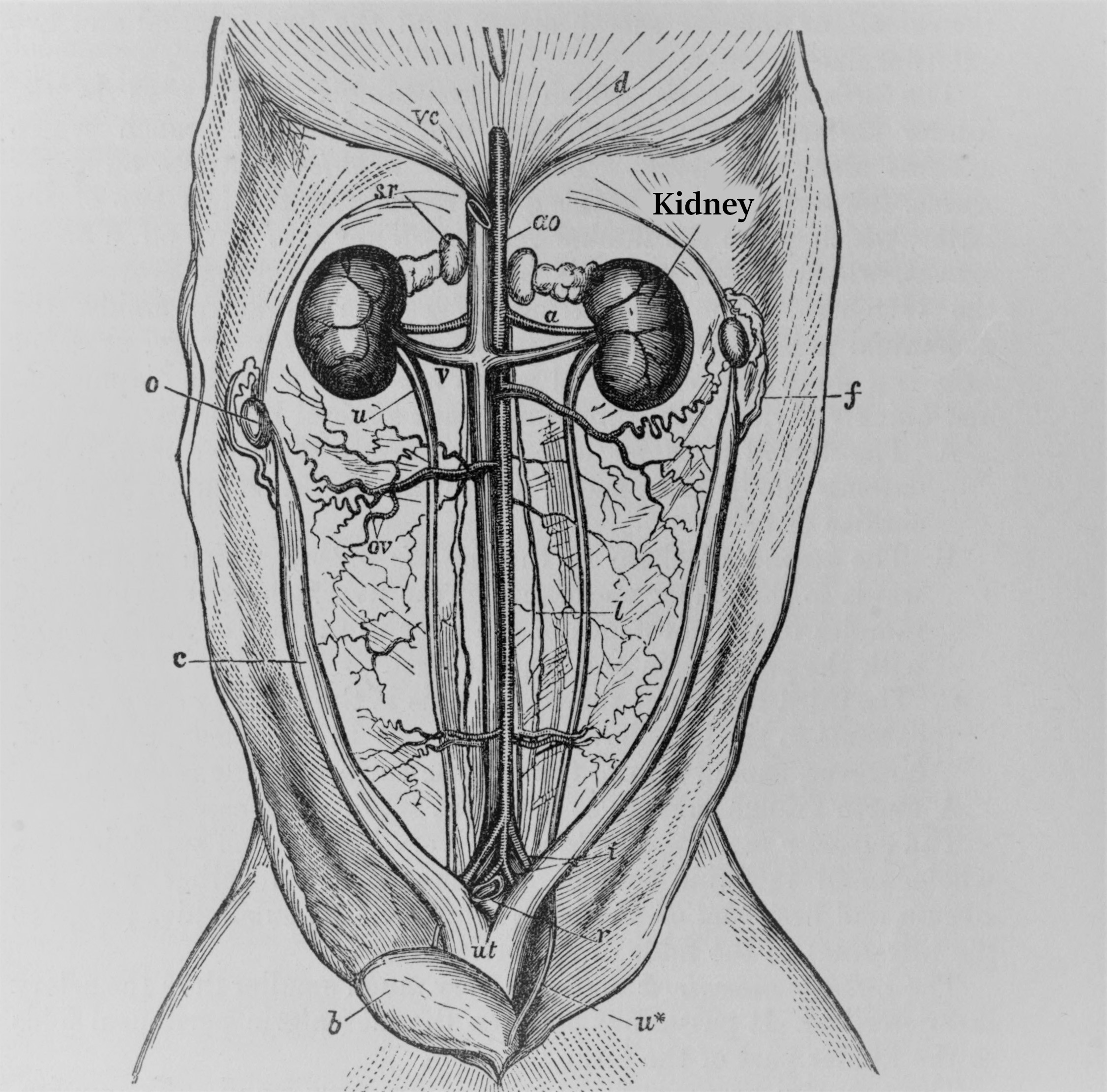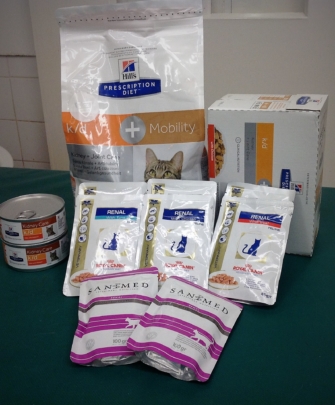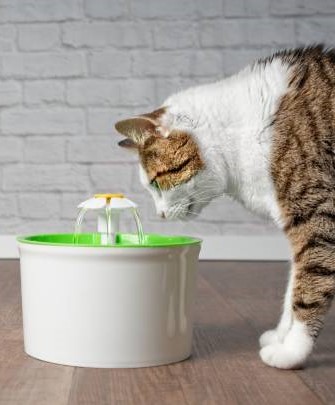
Chronic kidney disease is commonly seen in older cats. This article will focus on the signs seen, the best treatment and the long-term prognosis.
What is chronic kidney disease?
The kidneys are paired organs in the body which produce urine. Your cat’s kidneys have many important functions which include maintaining fluid balance, producing certain hormones, maintaining electrolyte balance and excreting waste products from the body. In chronic kidney disease the kidneys are damaged and stop working, so all these functions are affected. Once there has been damage to the kidneys it is not reversible and cannot be cured.
What causes chronic kidney disease in cats?
In most cases the exact cause of the long standing and irreversible damage is unknown. This is called idiopathic chronic kidney disease. In some cases there may be an underlying cause such as infection (pyelonephritis), kidney tumours and certain toxins (such as antifreeze). An inherited disease called polycystic kidney disease may seen in some pedigree cat breeds such as persians and ragdolls. If the cause can be identified then specific treatment may be needed, if not then general treatment is aimed at managing the kidney disease and the complications that may arise.

What are the main signs of chronic kidney disease in cats?
To start with the signs are often subtle and mild. Over time as the disease progresses they become more obvious. The signs are also not specific to kidney disease and can sometimes be due to other causes. The most common signs your cat may show are weight loss, drinking more, going off food, being more picky with food and increased urination. Other signs can include vomiting, high blood pressure, bad smelling breath, poor coat condition and weakness.
How do we diagnose chronic kidney disease in cats?
To diagnose chronic kidney disease in your cat we would need to assess a blood sample and a urine sample. In chronic kidney disease there will be increases of creatinine and urine in the blood. There may also be signs of anaemia (low red blood cell count) and changes to potassium, phosphorus and calcium levels. The urine sample is used to assess for the concentrating ability of the kidneys. In kidney disease the urine will not be concentrated normally. The level of protein in the urine is also important of a marker of progression of the kidney disease. To find out how to get a urine sample click here.

Blood testing
The blood sample taken is often sent to an external laboratory for a more complete analysis. If however there is more urgency we can run a limited profile in house.
What are the best treatment options for chronic kidney disease in cats?
If a specific cause is identified then your cat may require other treatments. However in most cases of chronic kidney disease in cats the treatment is supportive and symptomatic. When first diagnosed your cat may need to be hospitalised for fluid therapy to correct their dehydration and reduce the urea in the blood. Once they are stable then there are a variety of treatments that may be used.
Change in diet.
Often the first and most important treatment is switching your cat onto a new diet designed for kidney disease. Hills K/D or Royal Canin Renal are both examples of these foods, but there are others available. These diets are designed to be lower in protein and phosphorus. The lower protein reduces the production of urea; urea is normally excreted by the kidneys but in chronic kidney disease can build up and cause nausea and sometimes ulceration in the body. Phosphorus levels are also controlled by the kidneys and will increase in chronic kidney disease, studies have shown that reducing phosphorus in the food prolongs the life of cats with chronic kidney disease. When changing the diet this should be done gradually. Sometimes warming the food can make it more palatable.
Increasing water intake.
Increasing water intake is also important. The easiest way to do this is to feed your cat wet food. Extra water can be added to this food when it is fed. Another way is to get a cat water fountain to encourage them to drink more. Your cat cannot focus from about 10cm in front of its face as they are long sighted. This means that water bowls with still water can be off putting because they cannot work out where the water begins. Water fountains where the water is moving are often more appealing because they can use their other senses to find the surface of the water more easily.
Other options
Over time further blood and urine tests may be needed to assess the progression of the disease. Blood pressures may also be checked. This way we can also monitor for any disease complications and treat them where necessary. A common complication that may be seen is anaemia (low red blood cell counts) and this requires blood testing to assess.


What is the prognosis for cats with chronic kidney disease?
Once the damage to the kidneys has occured then it cannot be reversed. Eventually in time the kidneys will fail. However cats that are diagnosed earlier in the progression of the disease and which are treated earlier may go on to have a good quality of life for a couple of years. The later they are diagnosed and treated the quicker the disease may progress and the poorer the prognosis. So if you are concerned then please get your cat seen quickly to give it the best prognosis. Routine monitoring with bloods can be performed every 6 months to catch any signs of the disease as early as possible.
Chronic kidney disease in cats can lead to secondary conditions that may also need treating. Cats with chronic kidney disease are more likely to develop anaemia (low red blood cell counts), cystitis (infection in the bladder) and high blood pressure. That is why we monitor them more with further tests as the disease progresses.
If you are concerned that your cat may be showing signs of chronic kidney disease then please contact reception on 01702 545558 to book an appointment. For more information on chronic kidney disease in cats click here.

